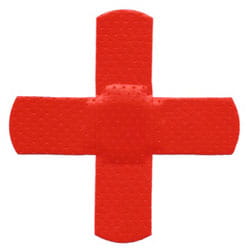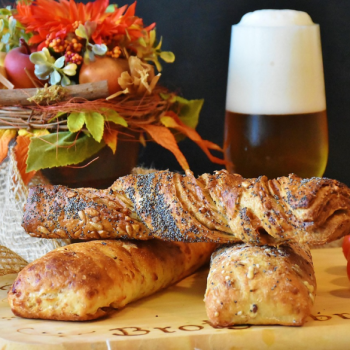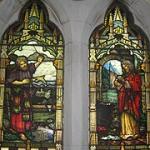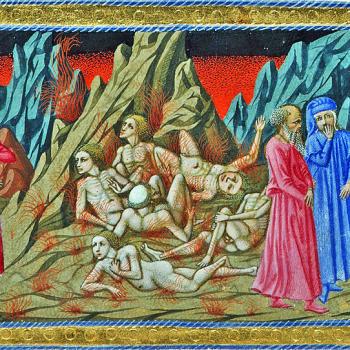 Cancer. It had to be cancer. That's the only way I could explain the twinges that a few years ago persisted behind my right eye, near my brain.
Cancer. It had to be cancer. That's the only way I could explain the twinges that a few years ago persisted behind my right eye, near my brain.
Hoping to avoid the smeared pages of outdated magazines and other degradations of a doctor's waiting room, I turned to WebMD.com to involve myself in one of the great projects of modern man: self-diagnosis. I scanned dozens, perhaps hundreds, of maladies, disorders, and conditions, fatal and benign. At some point, my reading seemed to converge around a tumor, and I let myself daydream about some hideous malignancy mushrooming around my brain.
I wasn't going casket-picking just yet, however, and I decided to see some doctors. Eventually, I was handed over to a neurologist. He began by asking me questions, questions about my eating habits, stress levels, any history of eye pain or headaches. Within a few minutes, he said: "You have a headache." An ongoing migraine, actually.
He prescribed medication and sent me on my way. Within 24 hours, the pain had vanished.
During those anxious weeks, WebMD informed me about all manner of aches and conditions. It allowed me to give myself dozens of diagnoses. The only problem was that they were all wrong. Only the direct encounter with expertise made sense of my problem; only a specialist, someone with thirty years of experience in various neurological afflictions, was able to detect how the disparate symptoms fit a diagnosable condition.
That time was, I now realize, like most encounters I have had with WebMD or similar online resources. They have been informative and helpful, but rarely have they led to complete or correct assessments of my condition. A starting point? Yes. A means to rule out some conditions? Sure. But a substitute for the judgment of an expert, someone trained in the workings of the human body? Not at all.
Why do I recollect this instance of miscalculation? Recently, I read Lisa Fullam's post at Commonweal about the decision of Phoenix Bishop Thomas J. Olmsted to restrict the availability of communion wine. Initially I was interested in her analysis, but I was soon overwhelmed by the reaction: Eighty-nine comments responded to Fullam's posting. Rita Ferrone's posting a few days later on the same topic resulted in 62, and a second by Ferrone pulled in 132.
As I scrolled through the condemnations and affirmations, the hair-splitting and scrutinizing, it occurred to me: We are living in the age of WebMD Catholicism.
What is WebMD Catholicism? I use that term, first, to reflect the fact that we have thousands of documents, statements, books, letters and other publications that give the average lay Catholic tremendous knowledge concerning all branches of Catholic theology and worship. Want to understand the Church's position on love? Read Deus Caritas Est. Want to know about mortal and venial sin? Check the Catechism. Want to know how American Catholic Bishops treat marriage and family? Navigate to usccb.org. Want to question the Bishop's decision on the distribution of communion? Consult the General Instruction of the Roman Missal.
In addition to official Church teaching, there are limitless blogs and other forums where people are speaking about, on, or on behalf of Catholicism. Patheos alone features a total of twenty columns and blogs on the Catholic portal (including four added in the past two months). Jennifer Fulwiler links - last time I checked - to 53 other blogs under the heading "Faith and Life." The National Catholic Register features ten bloggers, Commonweal 24 and America 23. And that is only a tiny portion of the thousands more out there.
Catholicism is everywhere. Sources on the faith, official and unofficial, abound.
But the notion of WebMD Catholicism helps frame a second concern: Faced with this multiplying number of sources, one might ask: Does the availability of information seduce us too quickly to believe that we can accurately understand and diagnose the theological and liturgical questions we face? Put another way, what has become of, or how do we make sense of, the notion of expertise among those who profess an interest in what the Church teaches? Do too many of us rush to encyclicals and other papal statements, or the writings of a famous saint or Catholic intellectual, with the same confidence with which we rush to WebMD to understand and diagnose sickness in our physical health—and with the same erring result?
I consider these questions against the backdrop of Bishop Olmsted's decision to restrict the availability of communion wine. The Diocese of Phoenix published the announcement in conjunction with a set of answers to anticipated questions. The Diocese, in other words, made their reasoning available to the public - a public that includes highly educated Catholics like Commonweal's Lisa Fullam and Rita Ferrone, to whom Olmsted's decision makes little to no sense.




